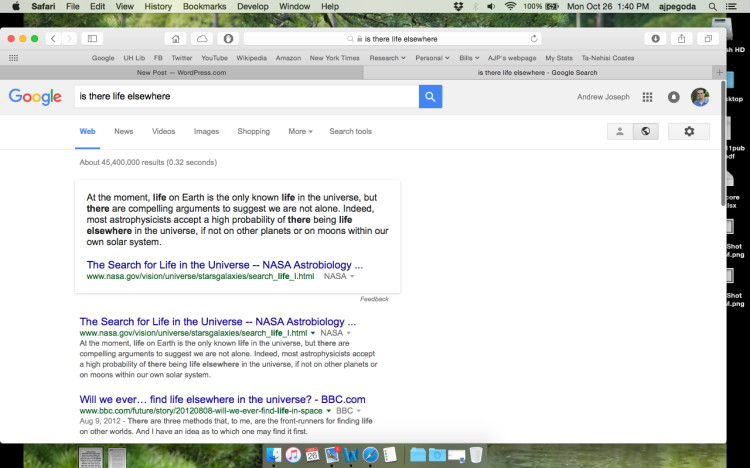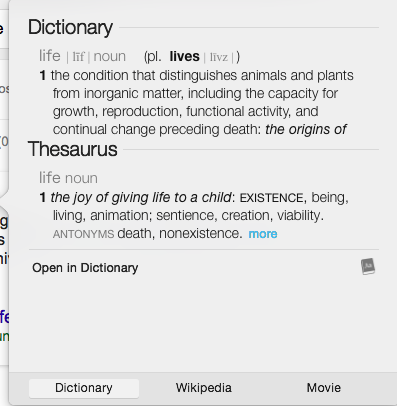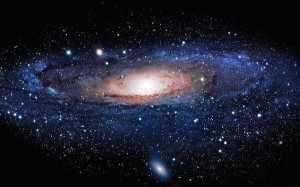More and more often science news relates to possible “life” outside of Earth. For example, in the past few weeks scientists have reported unusual activity around KIC 8462852 and some speculate the unusual behavior could be explained by “alien” megastructures. This morning, “The Five Craziest Exoplanets Ever Discovered” came up. And this comes up when Googling “is there life elsewhere.” 
Nevertheless, since I was a little kid, I have always thought the question about whether or not life exists elsewhere as a ridiculous question — of course it does.
It is entirely too convenient per se and typical of humans to think our rock is the only rock with life!
We must examine what it–“life”–actually means. Here is what Google suggests:

Very simply: this definition privileges understandings of life on Earth, as we know them, and this definition privileges that which we think we know the best.
It places humans, other animals, and plants within the hierarchy of life, while excluding everything else that is clearly essential to life (oxygen, water, bacteria —- more and more studies show that we’re more bacteria than ourselves!). It assumes that what scientists know now is/will become stable knowledge. Scientists again and again discover that seemingly “everything” they knew is now wrong because of such-and-such discovery.
From another perspective, this definition is very normative-human-centric (and sometimes male-centric). We live in a culture that has very recently–when looking at History on a broad scale–declared women, Blacks, and Native Americans as something other than human, for example. If we actually discovered “aliens,” there would be lots and lots and lots of dialogue about whether or not they were “humans,” “life,” or “savages to destroy.” Given the trajectory of history so far, we would start wars with them and try to wipe them out and would not try to understand them or accept them as life.
Continuing with this line of thought, what does it mean to live? Who has a right to life? From one perspective, we could say that talking about “life” is kind of insulting to those men and women who were never given an opportunity to actually and fully live because of being enslaved, for example.
Going back to the definition above “the capacity for growth, reproduction, functional activity, and continue change preceding death” excludes a lot of people who have some kind of medical difference, people who are certainly very alive with their own hopes and fears and talents.
On the other hand, the Earth itself fits this definition pretty well but most would not say the Earth itself is alive. Earth continues to change and will die at some point and creates things.
My basic point, said in what I hope will be clear words, is that of course there is life elsewhere: Life exists on Mars, Neptune, Venus, and all the other rocks and stars every where because, very simply, it is there and is occupied with “stuff.” In this same way, your computer screen is also “alive.” Humans, according to evolutionary theories, emerged from start dust – but, according to typical definitions of life, our very distant ancestors would be excluded. Life takes all kinds of extremely different manifestations. The ways in which life fully and inevitably exist elsewhere are, very simply, beyond our human capacity to imagine and beyond what it is possible to know and understand, at least for a long while to come. If we limit life to those things that can think, breathe, and/or reproduce, we are limiting our vision to our determinant.
